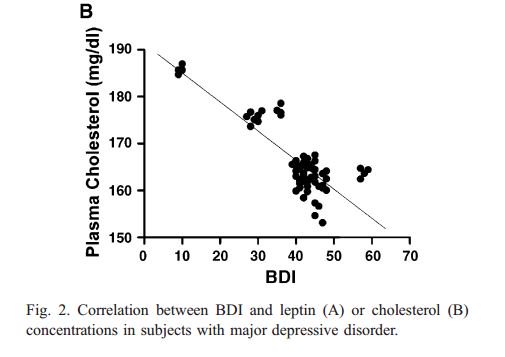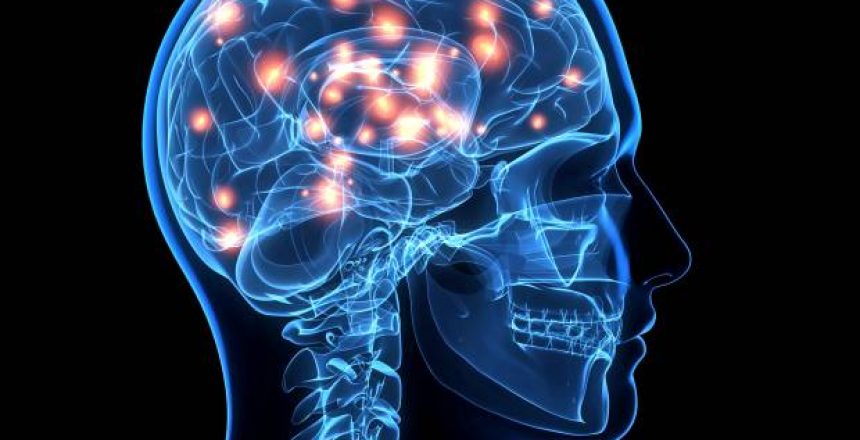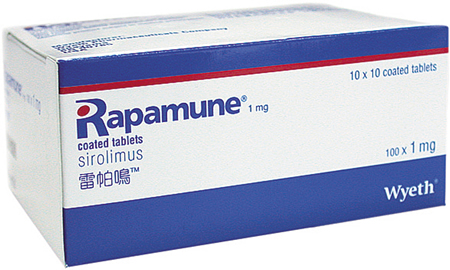The human brain contains a high proportion of cholesterol, which is necessary for proper function. A number of scientific studies have found that higher cholesterol is associated with better brain health, and that low cholesterol is associated with worse.
The brain and cholesterol
The brain makes up only 2% of body weight but accounts for 23% of total body cholesterol. Clearly, the brain has a high need for cholesterol, which is important for the myelin sheaths of nerve cells and in neurotransmission. Insufficient cholesterol can impeded neurotransmitters.
In recent articles, we’ve seen how higher cholesterol is associated with longer life, and that much of current thinking on cholesterol and health has it backward. It seems likely, given links between long life and cholesterol, as well as the high cholesterol content of the brain, that higher cholesterol could lead to better brain health. What does the evidence say?
Dementia and cholesterol
In the elderly, high total cholesterol and high LDL cholesterol are associated with better memory function, although there was no association in APOE4 carriers. Low total cholesterol may be an early marker for cognitive decline.
In elderly people – 85 years old and up – those whose serum cholesterol levels had increased had the lowest risk of dementia.
Even among healthy middle-aged women, higher total and LDL cholesterol was associated with better memory function. The authors of this study caution, “Possible cognitive effects
of cholesterol reduction should be considered in future studies of lipid lowering agents.” What this means is that statins could harm cognitive function.
In a study of Finnish men, dietary cholesterol and egg consumption was associated with lower risk of dementia and/or Alzheimer’s disease. Each additional 1/2 an egg daily was associated with 11% lower risk of dementia. Eggs are good for the brain.
Cholesterol and violence, suicide, and depression.
Major depression, violence, and suicide have long been linked to low cholesterol.
“A significant association between low or lowered cholesterol levels and violence is found across many types of studies. Data on this association conform to Hill’s criteria for a causal association. Concerns about increased risk for violent outcomes should figure in risk–benefit analyses for cholesterol screening and treatment.”
Low serum total cholesterol level is associated with an increased risk of suicide. Those in the lowest quartile (fourth) of cholesterol levels (<162 mg/dl) had 6 times the rate of suicide as those in the highest (>224 mg/dl).
Low cholesterol is associated with increased depressive symptoms in older men. Another study found the same result.
Cholesterol levels are low in major depressive disorder. Chart below shows the correlation between plasma cholesterol and the Beck Depression Inventory (BDI) score.

Low cholesterol and high triglycerides are associated with 4.3 times the risk of major depression, and with 5.4 times the risk of a suicide attempt, in Mexico.
Statins are associated with worse cognitive function
Statins are drugs that lower cholesterol, and if the associations between low cholesterol and poor brain health we’ve discussed above are causal, then statin use should also be associated with worse brain health.
Stains have been anecdotally associated with memory loss. Adverse cognitive effects from statins appear to be dose-related. Some 90% of patients who had cognitive problems reported improvement after they stopped taking a statin, sometimes within days of stopping. “Of interest, in some patients, a diagnosis of dementia or Alzheimer’s disease reportedly was reversed.”
Statin use is associated with about double the risk of Parkinson’s disease, and high cholesterol cut the risk of Parkinson’s in half.
Large increases in dementia or other cognitive impairment have been found with statin use.
Conclusion
Most of the data above (except animal experiments) are association only, and do not show causation. But given what we know about how the brain uses cholesterol, there are good reasons to think that high cholesterol is good for brain health, and that low cholesterol, whether “natural” or achieved through diet or statins may harm the brain, and increase dementia risk, as well as risk of depression, violence, and suicide.
The widespread practice of prescribing statins to all and sundry could increase the incidence of cognitive decline and dementia.










8 Comments
Nice article. The Finnish study on egg consumption and brain health was particularly interesting to me. I’ve eaten 2-3 eggs daily for years, as eggs are one of the most nutrient-dense foods around. Based on this study, it sounds like consuming up to 4 eggs daily would be fine.
Unless I missed something, based upon the study, it seems like you don’t need to stop at 4 eggs…
Interesting. I’ve been eating 3 egg yolks a day for some time, and definitely feel better for it….Even more might be good, it seems…
I find this subject ultimately compelling. Have you heard or seen of the recent study involving sleep quality in older and moderately older adults and the level of amoloid protein accumulation? I read a take upon that study that targeted “autophagy” as the DRIVER of amaloid build up, as studies showed the accumulation of amaloid plaque between neurons. ….Now, as alarming as that sounds, consider that the same write up mentioned that amoloid plaque is better served outside the neuron than inside it and that’s exactly what autophagy ushers forth; cell cleaning. So, I’d be interested in your opinion here and I wish that I had links for you. Actually, it seems that this subject is tailor made for a “Rogue Health and Fitness” post of its own…
*P.S. I wanted to also mention that I’d be really interested to see how the above referenced study would incorporate the dimension of cholesterol. Of the hundreds of people involved in the study, I’d love to know what their collective views upon cholesterol are and how they dieted in general.
Okay, so the logical follow-up question here would be: how does one go about *raising* one’s cholesterol, assuming that it’s low? My total cholesterol is around 150 (with HDL around 65). I don’t shy away from saturated fat, and eat 4-5 eggs a couple of times a week (occasionally more). My health is great, so I’m not sure I want to change anything, but this seems like an interesting question nonetheless.
Gaining weight might work. The docs also say eating lots of saturated fat will, but I’m not sure about that.
Hello Mr. Mangan, I happened upon your site by accident and was so please to see such a treasure chest of great information, thank you for that. I liked the articles on different nutrient for health very much. I think looking deeper into the cognitive enhancing effects of nootropics would be a good move and much appreciated by the people that follow you. I thought you might be interested in learning a bit about the many benefits of RNA therapy so I’m sending you a good article on the subject. Cheers https://www.integratedhealthblog.com/dietary-nucleic-acids-benjamin-s-frank-part-one/